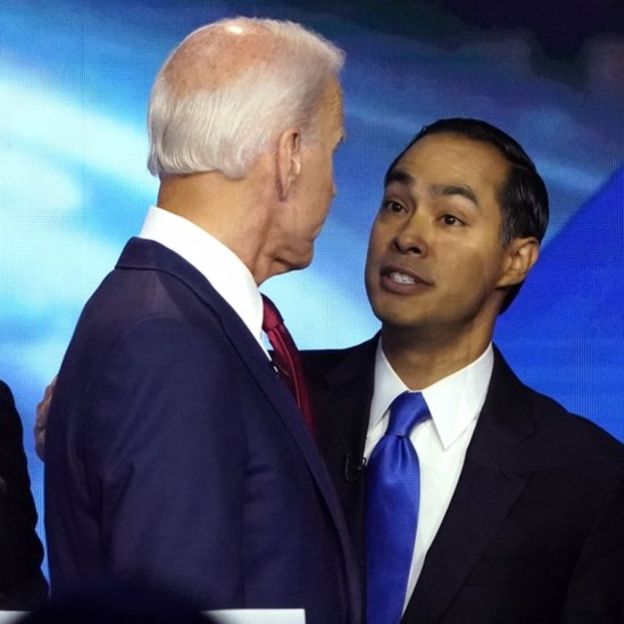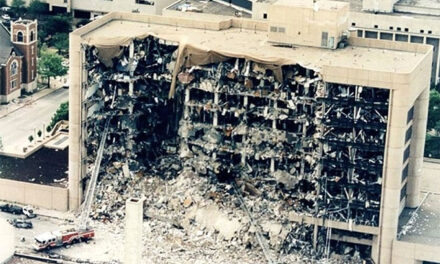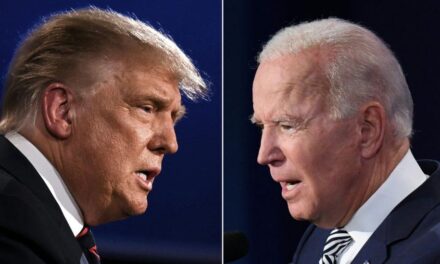Image Credits: Reuters.
The Democratic Party presidential debate in Houston, Texas mercifully only lasted one night and had a manageable 10 participants instead of 20. This is progress.
Among the participants, seven are current or former members of Congress, two are current or former mayors (Pete Buttigieg and Julian Castro), two are former members of Obama’s cabinet (Joe Biden and Castro) and one (Andrew Yang) has no political experience whatsoever. Including Biden, the senators were Bernie Sanders, Elizabeth Warren, Kamala Harris, Cory Booker, and Amy Klobuchar. Beto O’Rourke served in the House of Representatives. What’s most notable, especially at a time when the public has such a low regard for our elected officials in Washington, DC, is the complete lack of current or former governors. However implausible some of their campaigns may have been, the 2016 Republican field included current and former governors Mike Huckabee of Arkansas, Jim Gilmore of Virginia, Jeb Bush of Florida, John Kasich of Ohio, and Chris Christie of New Jersey.
The Democratic governors who announced this year have either dropped out already (John Hickenlooper of Colorado and Jay Inslee of Washington) or failed to qualify for the debate because of their lack of support (Steve Bullock of Montana). Maybe this has something to do with the different ways Democrats and Republicans think about the federal government, but it’s still a somewhat unexpected development.
One of the consequences is that Thursday’s debate had a different feel from most presidential primary debates. Normally, a few of the candidates are really angling for a position in the cabinet. But few senators are willing to give up what could be a plum lifetime political position in the Senate to serve a few years in someone else’s administration. Would Bernie Sanders or Elizabeth Warren want to serve in Joe Biden’s cabinet? Would Cory Booker or Kamala Harris?
Julian Castro has already held a cabinet position, so unless he were in line for one of the top prestigious posts at State, Defense or Treasury (and he’s not), he probably has no interest in auditioning to serve again. And it kind of shows.
He launched a blistering and ageist attack on Joe Biden, falsely mischaracterizing what Biden had said about his health care plan and suggesting that he has memory problems. It’s safe to say that he won’t be getting any job interviews from Biden if the former vice-president secures he nomination.
So, who up on the stage might serve in an eventual Democratic cabinet? I think the most likely candidate is Pete Buttigieg. As a veteran, he could be tapped to head Veterans Affairs. He might be suitable for some of the other low-level posts. I’m not sure Andrew Yang is clearly qualified to run any federal agency, but he could find a job in some capacity.
Some of the candidates might wind up on the ticket either through choice or perceived necessity. Cory Booker seems like he might wind up on Biden’s shortlist. In general, it doesn’t seem like the greatest idea to have two senators running on the ticket, so I don’t know how likely it is to see other combinations (e.g., Warren-Klobuchar, Sanders-Harris). It could be that one of the governors makes it onto the ticket, although I’m not sure which Democratic governor would really make sense in that role.
There was a lot of talent on the stage, and a lot of folks who should make up the future of the party, but I think it’s possible that only the eventual nominee will wind up serving in the next administration, assuming Trump isn’t reelected.
I guess that won’t be that odd when I consider that only Ben Carson among Trump’s competitors wound up serving in his cabinet. In this case, though, it seems like it would be squandering a lot of potential. The candidates on the stage in Houston could form a very formidable government if they were willing to put egos and ambition aside and work together. I just don’t see that happening.







